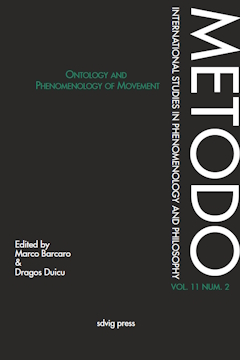Life in motion
Eugen Fink and Emmanuel Levinas
pp. 167-204
Abstract
This paper aims to ofer descriptions of the motion of human life and the place it is embedded in by presenting Eugen Fink’s cosmology and Emmanuel Levinas thinking as philosophies of motion. For both, human life is placed inside an impersonal motion and needs to make its home inside it. They differ however in the adequate mode of achieving this. The first part begins by introducing a difference between observable and non-observable types of motion with Fink. Progressing from thing ontological concepts of motion derived from observation on things, the text presents Fink’s conceptions of the non-observable motions of human existence and the cosmic motion of appearing itself. In the second part, human life is thought as a corporeal motion of emancipation from the unpredictable motion of the elements. Taming the elements in economy, human life moves infinitely towards the Other. The conclusion juxtaposes Fink’s and Levinas‘ philosophies of motion.
Publication details
Published in:
Barcaro Marco, Duicu Dragoş (2024) Ontology and phenomenology of movement. Metodo 11 (2).
Pages: 167-204
Full citation:
Niemann Lutz (2024) „Life in motion: Eugen Fink and Emmanuel Levinas“. Metodo 11 (2), 167–204.


